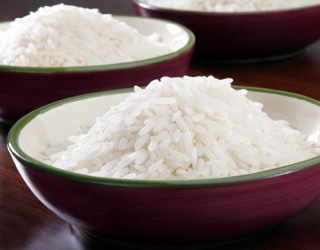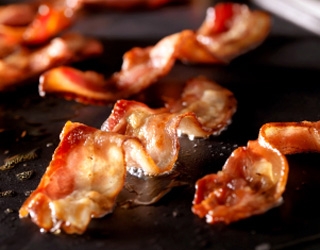The Worst Foods for Arthritis
Saturated Fats
This category includes fats primarily found in animal products, such as fatty beef, pork, and lamb, poultry skin, ice cream, butter, whole or 2 percent milk, regular cheese, bacon, bologna, salami, pepperoni, and beef sausage. Saturated fats are also found in palm oil and palm-kernel oil — you probably won’t find bottles of those oils in your pantry, but you will find them in the ingredient list of any number of items on your shelves, including crackers, cookies, and nondairy creamers. To limit your intake of saturated fats, choose reduced-fat or fat-free dairy products, lean cuts of beef and pork, and skinless chicken and turkey. As for packaged foods, you can find the saturated fat content listed on the Nutrition Facts panel; I advise choosing snack foods with no more than 2 grams saturated fat per serving and meal items with no more than 4.5 grams per serving.

Trans Fats
Trans Fats
In an effort to give baked goods a longer shelf life, scientists took common vegetable oil and added hydrogen molecules in the right places. The result was that the liquid oil turned solid — and dangerous: Trans fats — found in some baked goods, fast-food items, processed snack foods, and most stick margarines — are thought to be at least as damaging (and maybe even worse) as saturated fats in terms of inflammation, heart disease, and other health problems. Food producers are well aware of both the dangers of these ingredients and the growing public awareness of them, so many companies have now reformulated their products to remove all trans fats. Manufacturers are now required to list the amount of trans fats, right after the listing for saturated fats on the nutrition label. Choose only products that have 0 grams trans fats and do not contain any partially hydrogenated oils.

Fried Foods
Fried Foods
Caloric, high-fat foods like fried chicken, French fries, donuts, and deep-fried appetizers should be avoided by anyone who has arthritis. When eaten in excess, these foods can increase body fat, which puts extra stress on the joints and amplifies the risk of wear and tear. Plus, body fat is not an inert substance; it is metabolically active, capable of producing hormones and chemicals that actually increase levels of inflammation. To make matters worse, some restaurants fry their foods in hydrogenated oils, which means you may also be getting a dose of dangerous trans fats. Instead of frying, choose a healthier way to prepare your foods; grilling, steaming, roasting, and baking are all tasty, waistline-friendly methods.

Refined Carbohydrates
Refined Carbohydrates
Refined carbohydrates are found in anything baked with white flour, such as white bread, rolls, crackers, and most baked goods — as well as white rice and junky cereals. They’re all made by milling whole grains and removing the bran and germ — the two parts of the grain that contain the most nutrients. Refined carbs produce a state of inflammation in the body, causing increases in cytokines and other pro-inflammatory compounds, which makes arthritis worse. Limit foods made with refined grains if you want the best chance of reducing arthritis pain and progression, and switch to much healthier whole-grain options: whole-wheat bread, whole-grain cereal, whole-wheat pasta, and brown and wild rice should be staples on your weekly grocery shopping list.

Sugar Candy
Sugary Candy
Simple sugars — found in foods like cookies, fruit juice, soft drinks, and candy — are also refined carbohydrates; they send your blood-sugar levels soaring and set off an inflammatory response in the body, making arthritis and its symptoms worse. If you crave sweets, stick to a piece of fresh, fiber-rich fruit (paired with a handful of nuts or sunflower seeds to blunt blood sugar spikes) or see my list of low–sugar snacks for more options.
Wondering what foods you should be eating? See my list of 7 Foods That Ease Arthritis Pain.

Saturated Fats
Saturated Fats
This category includes fats primarily found in animal products, such as fatty beef, pork, and lamb, poultry skin, ice cream, butter, whole or 2 percent milk, regular cheese, bacon, bologna, salami, pepperoni, and beef sausage. Saturated fats are also found in palm oil and palm-kernel oil — you probably won’t find bottles of those oils in your pantry, but you will find them in the ingredient list of any number of items on your shelves, including crackers, cookies, and nondairy creamers. To limit your intake of saturated fats, choose reduced-fat or fat-free dairy products, lean cuts of beef and pork, and skinless chicken and turkey. As for packaged foods, you can find the saturated fat content listed on the Nutrition Facts panel; I advise choosing snack foods with no more than 2 grams saturated fat per serving and meal items with no more than 4.5 grams per serving.

